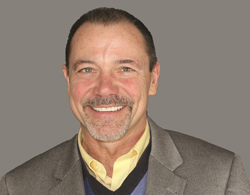Board Meetings: Bored No More

Michael J. Readinger
In my past two years as president and CEO, I have been blessed to work with the CHHSM Board of Directors as it grows and improves.
My role also calls me to serve on the United Church of Christ board, the National Benevolent Association board and the Interfaith Roundtable. I have seen all of these boards transform into even more vital, vibrant and high functioning groups than they were before.
The common theme for this change is the desire for these groups to do the work they are called to in new and innovative ways that embrace culture change when needed and embrace the old way of doing things when it makes sense to do so. No matter how good you think your governance structure is, be open to the changes and improvements that are the trademark of a dynamic board.
All of these boards excel at performing their fiduciary duties. A truly exceptional board does so with a clear understanding of the distinction between the respective roles of governance and management. Staying out of the weeds and focusing on a higher level of board oversight allows management to do their work and allows for a strong symbiosis between the two.
Of increasing importance is an intentional focus on the mission, vision and values of an organization; its clearly defined roles and responsibilities for board members; the development of volunteers into future board members; time for effective orientation and mentoring of new board members; pertinent and meaningful education sessions for board and staff; a sound committee structure with defined job descriptions, charters and annual workflow plans that includes regularly scheduled meetings outside of the full board meetings; and finally, time in board meetings for generative thinking where current strategies and new ideas can be explored and refined. All of these are best practices for sound governance and all of the boards I am involved with continue to improve in these areas.
Most importantly, truly exceptional boards work together with a strong sense of community, like a family. They like being together because they are operating in an environment of collegiality and friendship that fosters a strong feeling of trust and respect.
Exceptional boards get to that place by challenging each other in a safe space where all voices can be heard, in a gracious space. They get there by creating a culture where they can work hard but also have fun, participate in team-building experiences and find the time to get to know each other as individuals.
In essence, I suggest you embrace and foster culture change on your board. Be willing to take a step or two back on a regular basis so that you form not only an effective board, but a true community of servant leaders who share a common purpose – to be the best board possible.
Join Our Mailing LIst
"*" indicates required fields
Follow on Facebook
Pension Boards appoints David A. Klassen as its President, CEO - United Church of Christ
www.ucc.org
The Pension Boards, an affiliated ministry of the United Church of Christ recently announced its appointment of David A. Klassen as its next President and